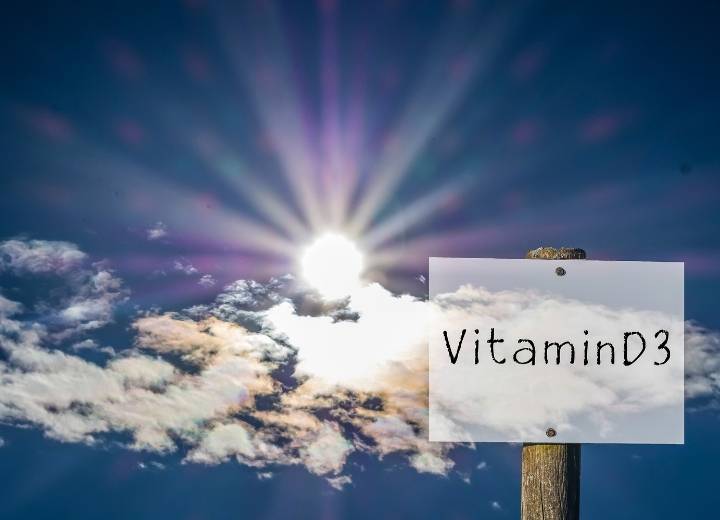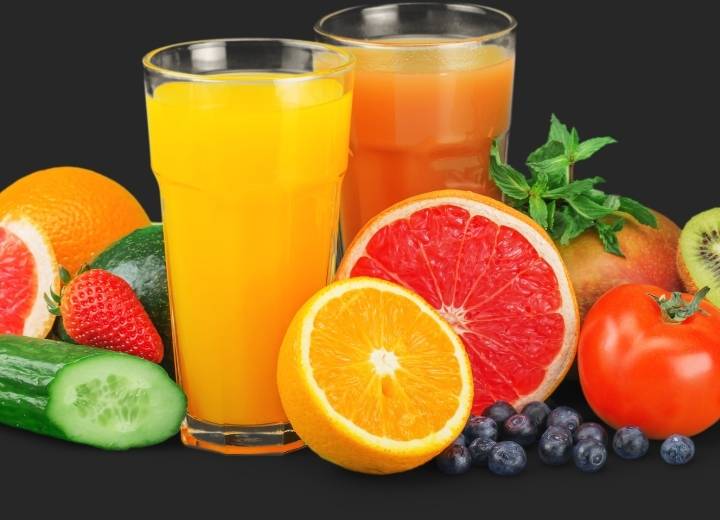What vitamins are vegan missing? Vegans and vegetarians can be constantly lacking some vitamins and nutrients, such as vitamin B12, vitamin D3, iron, calcium, zinc, and omega-3 fatty acids.
However, do not worry. You can get any vitamin on a plant-based. You can take a supplement for multivitamins, this is an easy and convenient way.
Below are the detailed benefits of these vitamins and nutrients.
#1. Vitamin B12
Vitamin B12 vitamins are hard for vegans to get. It is one of the essential vitamins for your body to function normally. It creates red blood cells, maintains your nervous system, and takes part in your protein metabolism.
Deficiency in vitamin B12 can result in anemia, fatigue, weakness, and numbness in the limbs, neurological disorders, bone and heart diseases, and even infertility.
Vitamin B12 can be found in some animal-derived foods, such as meat, fish, egg, and dairy products.
However, for vegans, the only source is either from taking supplements, or from eating nori seaweed, and other B12-fortified foods like breakfast cereals, plant milk, and soy products.
Either way, vitamin B12 is light-sensitive, so you shouldn’t store it in clear plastic bags.
#2. Vitamin D3
Vitamin D is also among the essential vitamins for your health. It boosts the absorption of calcium and phosphorus, takes part in regulating your immune system, and improves resistance against certain diseases.

Deficiency in vitamin D can lead to osteoporosis, reduced muscle strength, impaired brain function, high blood pressure, diabetes, depression, and even cancer.
The most important forms of vitamin D are vitamin D2 (ergocalciferol) and vitamin D3 (cholecalciferol). While vitamin D2 can be found in plants, the more potent vitamin D3 is exclusive in animal-derived foods like fatty fish, shrimp, dairy products, and egg yolks.
Therefore, vegans need to get it from either supplements, fortified food, or direct skin exposure to sunlight.
#3. Calcium
Calcium is the most common mineral in your body. It not only plays a role in developing your bones and teeth. It is but also in maintaining your muscle function, nerve function, and heart health.
Deficiency in calcium can result in brittle nails, numbness and tingling in the limbs, muscle cramps, osteoporosis, and even severe conditions like memory loss, depression, or seizures.
Calcium is not exclusive to animal-derived foods. It can also be found in nuts, seeds, whole grains, soy products, and leafy green vegetables.
However, some of these foods contain factors like oxalates, which can reduce the retention of calcium in the body.
Therefore, vegans can consider soaking them before cooking or combining them with supplements.
#4. Iron
Iron is one of the vital minerals for your health. It is involved in producing hemoglobin in red blood cells, providing muscle energy, and maintaining the immune system.
Deficiency in iron can lead to anemia (with typical symptoms like cold hands and feet, shortness of breath, dizziness, extreme fatigue, etc.) and decreased immune function.
Iron comes in two forms non-heme iron and heme iron. Non-heme iron can be found in plant-derived foods like beans, dried fruits, dark green vegetables, whole grains, and fortified cereals.
Heme iron is more easily absorbed; however, it can only be found in animal-derived foods. So, to boost iron absorption, vegans can consider combining food rich in non-heme iron with vitamin C.
#5. Zinc
Zinc is also among the vital minerals for your health. It is crucial for many activities in the body, such as metabolism, cell growth, DNA synthesis, protein production, and immune function.
Deficiency in zinc can result in decreased appetite, thinning hair, dry skin, diarrhea, decreased immunity, impaired wound healing, impaired development, and fertility issues.
Zinc can be found in both animal-derived foods like meat, shellfish, poultry, dairy products, and plant-derived foods like legumes, nuts, whole grains, some vegetables such as asparagus, kale, and mushroom.
However, some of these foods contain factors like phytates, which can reduce the absorption of zinc in the body.
Therefore, vegans can consider soaking them before cooking or combining them with supplements.
#6. Omega-3 fatty acids
Omega-3s are fatty acids that take part in many important processes in your body. They play a role in producing energy and have many functions in the heart, blood vessels, lungs, and immune system.
Deficiency in these acids can result in skin, hair, and nail problems, sleeping problems, fatigue, joint pain, the deficit in concentration, and depression.
Omega-3s fatty acids can be divided into ALA, EPA, and DHA. You can get ALA from flax seeds, chia seeds, walnuts, and soybeans.
However, EPA and DHA are animal exclusives. Your body can also produce them from ALA, but the rate is quite low. So, the best way to get them is by taking vegan supplements like algae oil.
Conclusion:
Going vegan is beneficial in building a healthy and sustainable lifestyle. You will get enough nutrients from vegetables alone.
Therefore, from finding what you are missing in this article, I hope you can make the vegan diet work best for your optimal health.
Ref:


